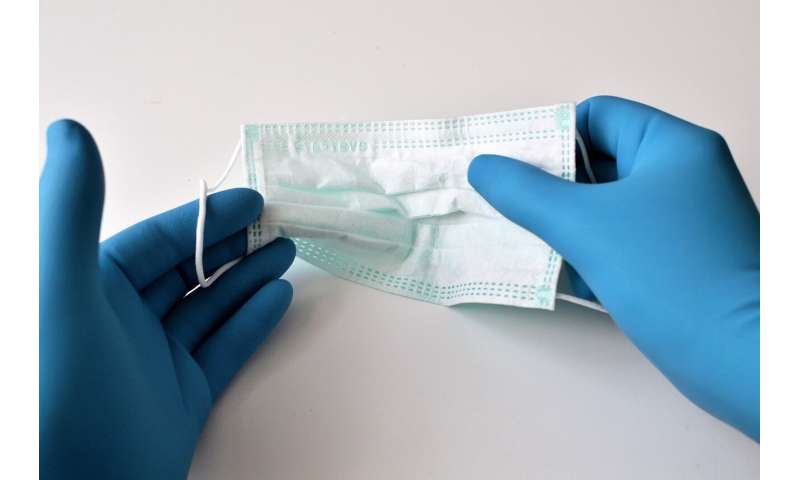
Europe passed 10 million coronavirus infections, the United States topped nine million and France entered a new lockdown on Friday as the resurgent pandemic increasingly forced other countries to consider following suit.
Belgium became the latest European country to tighten restrictions as virus numbers skyrocket across the continent, which recorded 41 percent more cases this week than the previous seven days, according to an AFP tally.
Europe is now recording 241,000 new cases a day—compared to 15,000 at the start of July—and represented roughly half of last week’s global infections.
Some 14 European countries meanwhile registered a record number of hospitalisations linked to the virus this week.
The virus is also surging in the United States, which registered a daily record of 91,295 new cases on Thursday, passing the 90,000-mark for the first time just days before the country’s presidential election.
Its total number of cases passed nine million, while 229,000 people have died of the disease in the US.
President Donald Trump continued to downplay the dangers of the virus, telling a cheering crowd at a Tampa rally that lockdowns under his Democrat rival Joe Biden would banish normal life.
“We’re never going to lock down again,” Trump said ahead of the November 3 vote, telling supporters his own recent bout with COVID-19—for which he was hospitalised—proved it can be beaten.
Also in Tampa, Biden responded by saying: “I’m not going to shut down the economy, I’m not going to shut down the country. I’m going to shut down the virus.”
Italy posted its own daily infection record on Friday, fuelling debate about whether it should follow France into a national lockdown.
“Over 31,000 cases and 199 deaths. I ask you one question: what are you waiting for?” virologist Roberto Burioni tweeted.
A new US government study meanwhile found that people infected with COVID-19 infect around half of the members of their household, with adults only slightly more likely than children to spread the virus.
‘Don’t have a choice’
Belgium, which has the most COVID-19 cases per capita in the world, said it would impose tighter lockdown rules from Monday, closing non-essential businesses and restricting household visits.
France’s 65 million people woke on Friday to a new lockdown, largely confined to their homes and needing written statements to leave.
But some medics voiced fears that steady traffic and appreciable numbers of people on public transport in Paris showed the public was not taking the lockdown as seriously a second time round.
“Crossing Paris this morning looked more like an ordinary day than the first day of a lockdown,” the director of Paris hospitals Martin Hirsch tweeted.
“We don’t have the choice, we are obliged to live, do our shopping and behave as if it is normal even if there are some safety measures,” said Fabrice Angelique, 18, buying headphones at a books and electronics store in Paris.
A total of 49,215 new cases were recorded over 24 hours in France, according to official figures on Friday.
Nottingham became the latest of a swathe of cities across central and northern England to enter the highest tier of local restrictions Friday, with the 2.4 million residents of Leeds set to follow suit next week.
Czech Republic lawmakers voted to extend a state of emergency until November 20, while Iceland ordered bars and nightclubs closed and limited public gatherings to no more than 10 people.
But there has been resistance to measures to stop the virus, with clashes between protesters and police erupting on Friday in the Spanish city of Barcelona against mobility restrictions.
‘Existential threat’
Russian President Vladimir Putin said he had no plans to introduce a sweeping lockdown, even as the country saw record tolls with reports of ambulance queues at hospitals and medical shortages.
There were however small glimmers of hope—sometimes controversial—in some countries.
In Slovakia, a government programme to screen its entire population of 5.4 million people for coronavirus with antigen tests in what would be a global first, was due to begin on Saturday.
And in Italy, pharmacists are facing a huge upsurge in demand for a niche product—of so far unproven effectiveness against COVID—usually marketed as an immune system booster for babies.
The demand for Lactoferrin comes weeks after a viral video suggested it might help protect against coronavirus.
There was also some good news for football star Cristiano Ronaldo, who tested negative for COVID-19 and will leave home isolation in Italy after receiving a positive result on October 13.
Source: Read Full Article